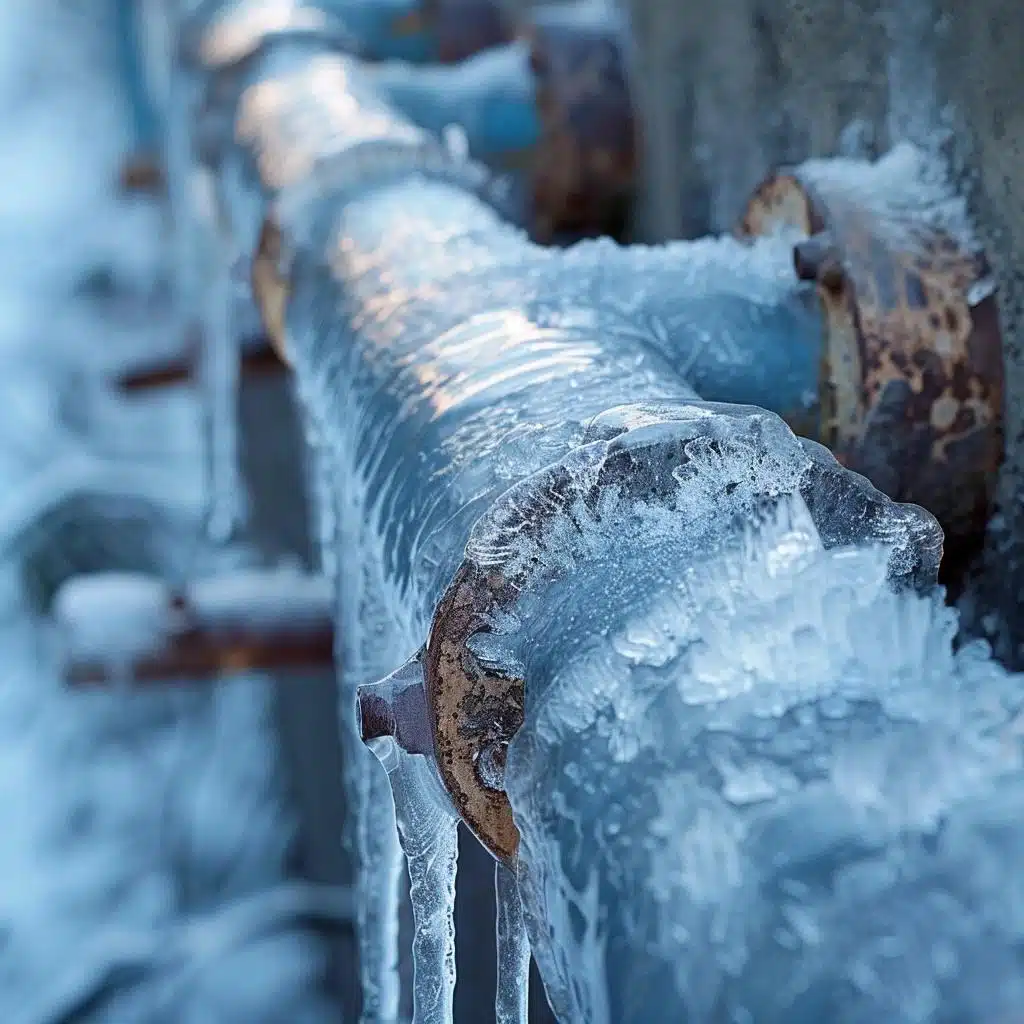This great article directly below in relation to Prevent Frozen Pipes is quite interesting. Read on and draw your own personal conclusions.

Cold weather can damage your plumbing, particularly by freezing pipes. Below's just how to prevent it from happening and what to do if it does.
Intro
As temperature levels decrease, the risk of icy pipes increases, possibly causing expensive repairs and water damages. Understanding just how to avoid icy pipes is crucial for home owners in chilly environments.
Comprehending Frozen Pipes
What triggers pipes to freeze?
Pipelines freeze when revealed to temperatures listed below 32 ° F (0 ° C) for extended periods. As water inside the pipelines ices up, it expands, taxing the pipeline walls and possibly creating them to burst.
Dangers and problems
Frozen pipes can cause water supply disturbances, home damages, and pricey repairs. Burst pipes can flood homes and trigger substantial architectural damages.
Indicators of Frozen Pipes
Determining icy pipelines early can stop them from breaking.
Just how to recognize frozen pipelines
Seek reduced water circulation from taps, uncommon odors or sounds from pipelines, and noticeable frost on exposed pipes.
Prevention Tips
Protecting prone pipes
Wrap pipelines in insulation sleeves or use heat tape to protect them from freezing temperature levels. Concentrate on pipes in unheated or external locations of the home.
Heating strategies
Maintain interior rooms adequately heated, specifically areas with plumbing. Open up cabinet doors to enable warm air to flow around pipes under sinks.
Securing Outdoor Pipes
Garden pipes and outside taps
Disconnect and drain pipes garden hose pipes prior to winter season. Mount frost-proof spigots or cover outside taps with shielded caps.
What to Do If Your Pipes Freeze
Immediate activities to take
If you think icy pipelines, maintain faucets available to soothe pressure as the ice melts. Utilize a hairdryer or towels taken in warm water to thaw pipelines gradually.
Long-Term Solutions
Structural modifications
Take into consideration rerouting pipelines far from outside wall surfaces or unheated locations. Include added insulation to attic rooms, cellars, and crawl spaces.
Updating insulation
Buy premium insulation for pipes, attics, and wall surfaces. Proper insulation helps maintain regular temperatures and reduces the risk of icy pipelines.
Verdict
Preventing icy pipes requires proactive actions and fast reactions. By understanding the reasons, indications, and preventive measures, home owners can secure their plumbing throughout cold weather.
Helpful Tips to Prevent Frozen Pipes this Winter
UNDERSTANDING THE BASICS: WHY PIPES FREEZE AND WHY IT’S A PROBLEM
Water freezing inside pipes is common during the winter months, but understanding why pipes freeze, and the potential problems it can cause is crucial in preventing such incidents. This section will delve into the basics of why pipes freeze and the associated problems that may arise.
THE SCIENCE BEHIND FROZEN PIPES
When water reaches freezing temperatures, it undergoes a physical transformation and solidifies into ice. This expansion of water as it freezes is the primary reason pipes can burst. As the water inside the pipe freezes, it expands, creating immense pressure on the walls. If the pressure becomes too great, the pipe can crack or rupture, leading to leaks and water damage.
FACTORS THAT CONTRIBUTE TO PIPE FREEZING
Low Temperatures: Extremely cold weather, especially below freezing, increases the risk of pipes freezing. Uninsulated or Poorly Insulated Pipes: Pipes located in unheated areas, such as basements, crawl spaces, or attics, are more prone to freezing. Insufficient insulation or lack of insulation altogether exacerbates the problem. Exterior Wall Exposure: Pipes running along exterior walls are susceptible to freezing as they encounter colder temperatures outside. Lack of Heating or Temperature Regulation: Inadequate heating or inconsistent temperature control in your home can contribute to frozen pipes. PROBLEMS CAUSED BY FROZEN PIPES
- Pipe Bursting: As mentioned earlier, the expansion of water as it freezes can cause pipes to burst, resulting in significant water damage.
- Water Damage: When pipes burst, it can lead to flooding and water damage to your property, including walls, ceilings, flooring, and personal belongings.
- Structural Damage: Prolonged exposure to water from burst pipes can compromise the structural integrity of your home, leading to costly repairs.
- Mold and Mildew Growth: Excess moisture from water damage can create a favorable environment for mold and mildew growth, posing health risks to occupants.
- Disrupted Water Supply: Frozen pipes can also result in a complete or partial loss of water supply until the issue is resolved.
WHY CERTAIN PIPES ARE MORE PRONE TO FREEZING
- Location: Pipes located in unheated or poorly insulated areas, such as basements, crawl spaces, attics, or exterior walls, are at higher risk of freezing.
- Exterior Pipes: Outdoor pipes, such as those used for irrigation or exposed plumbing, are particularly vulnerable to freezing as they are directly exposed to the elements.
- Supply Lines: Pipes that carry water from the main water supply into your home, including the main water line, are critical to protect as freezing in these lines can affect your entire plumbing system.
- Underground Pipes: Pipes buried underground, such as those connected to sprinkler systems or outdoor faucets, can be susceptible to freezing if not properly insulated.
https://busybusy.com/blog/helpful-tips-to-prevent-frozen-pipes-this-winter/

As a keen reader about How to prepare your home plumbing for winter weather, I imagined sharing that information was really useful. Are you aware of another individual who is interested by the niche? Please feel free to promote it. I treasure your readership.
Check This Out